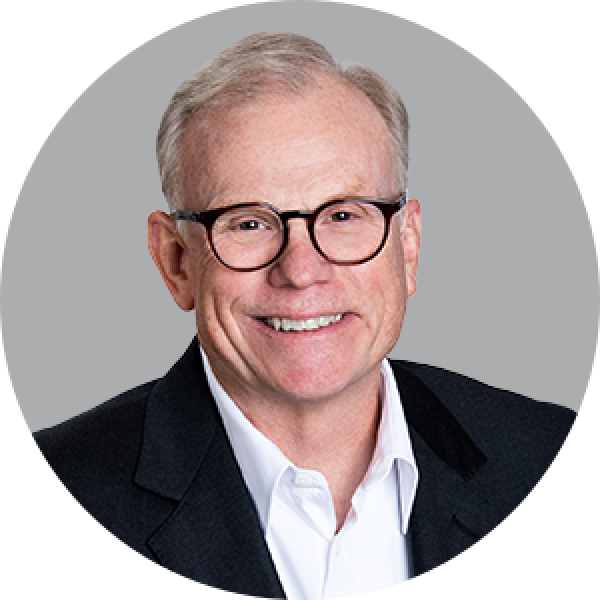In order to enter the page please read the information below and affirm by clicking the accept button that you have read and understood the information provided.
THE MATERIAL ON THIS SITE IS INTENDED FOR INSTITUTIONAL USE ONLY - NOT FOR RETAIL DISTRIBUTION
You must read the following information before proceeding. The following important information, in conjunction with the separate Terms of Use, governs your use of this website. Your use of this website and Content (defined below) constitutes your acceptance of those terms of use. If you do not agree with the terms of use, you should immediately cease use of this website and review of Content. When used herein, “we” and “our” means J.P. Morgan Asset Management [JPMAM] and its affiliates worldwide and “you” and “your” refers to any individual, company, or legal entity that accesses or otherwise uses this website. All of the information and content on this website, including, but not limited to, all text, analyses, reports, articles, graphics, software applications, video and audio files and photos, trademarks, service marks and trade dress (“Content”) is owned or licensed by JPMAM. J.P. Morgan Asset Management may offer advisory services in jurisdictions where it has received appropriate licenses to offer such services. This website is not directed to any person in any jurisdiction where the publication or availability of the website is prohibited. Persons in respect of whom such prohibitions apply must not access the website.
The information contained in this website is intended for use by Institutional Investors in the United States only. It is not intended for use by non-U.S. entities or for retail investors. “Institutional Investor” would include pension funds, investment company registered under the investment Company Act of 1940, Financial Intermediaries, Consultants, Endowments & Foundations and investment advisors registered under the investment Advisors Act of 1940, After you have read the information herein, you will be instructed to click to: 1) acknowledge that you are an “institutional investor” 2) that you accept the information herein, as well as the Terms of Use , the Privacy/Security and Cookie policies set out below and, 3) accept the delivery of this website in English.
Certain content has been obtained from sources that JPMAM believes to be reliable as of the date presented; however, JPMAM cannot guarantee the accuracy of such content, assure its completeness, or warrant that such information will not be changed. The content contained herein is current as of the date of issuance (or such earlier date as referenced herein) and is subject to change without notice. JPMAM has no obligation to update any or all such Content; nor do we make any express or implied warranties or representations as to its completeness or accuracy. Any Content presented regarding the affiliates of JPMAM is presented purely to facilitate an organizational overview and is not a solicitation on behalf of any affiliate. The content is not intended as an offer or solicitation with respect to the purchase or sale of any security or other financial instrument or any investment management services. The content does not constitute investment advice and should not be used as the basis for any investment decision.
The content does not take into account individual Institutional Investor circumstances, objectives or needs. No determination has been made regarding the suitability of any securities, financial instruments or strategies for any Institutional Investor. The content is provided on the basis and subject to the explanations, caveats and warnings set out in this notice and elsewhere herein. The Content does not purport to provide any legal, tax or accounting advice. Any discussion of risk management is intended to describe JPMAM’s efforts to monitor and manage risk but does not imply low risk.
RISKS ASSOCIATED WITH INVESTING. The price of equity securities may rise or fall because of changes in the broad market or changes in a company’s financial condition, sometimes rapidly or unpredictably. These price movements may result from factors affecting individual companies, sectors or industries selected for the portfolio or the securities market as a whole, such as changes in economic or political conditions. Equity securities are subject to “stock market risk” meaning that stock prices in general (or in particular, the prices of the types of securities in which a portfolio invests) may decline over short or extended periods of time. When the value of a portfolio’s securities goes down, an investment in a fund decreases in value. There is no guarantee that the use of long and short positions will succeed in limiting a strategy’s exposure to domestic stock market movements, capitalization, sector-swings or other risk factors. Investing in emerging markets carry additional risk relative to investments in developed markets. Investment in a portfolio involved in long and short selling may have higher portfolio turnover rates. This will likely result in additional tax consequences. Short selling involves certain risks, including additional costs associated with covering short positions and a possibility of unlimited loss on certain short sale positions. Fixed income investing is subject to the risk that a counterparty will fail to make payments when due or default completely. If an issuer’s financial condition worsens, the credit quality of the issuer may deteriorate making it difficult for an investor to sell such investments. Changes in foreign currency exchange rates will affect the value of fixed income securities .For example, when the value of the U.S. dollar rises in value relative to a foreign currency, an investment in that country loses value because that currency is worth fewer U.S. dollars. Devaluation of a currency by a country’s government or banking authority also will have a significant impact on the value of any investments denominated in that currency. Currency markets generally are not as regulated as securities markets. High yield fixed income securities are considered to be speculative and are subject to greater risk of loss, greater sensitivity to economic changes, valuation difficulties and potential illiquidity. Loans are subject to additional risks including subordination to other creditors, no collateral or limited rights in collateral, lack of a regular trading market, extended settlement periods, liquidity risks, prepayment risks, and lack of publicly available information. Derivatives, including futures contracts, options, swaps, credit default swaps, forward contracts and currency forwards, may be riskier than other types of investments and may increase the volatility of a portfolio. Derivatives may be sensitive to changes in economic and market conditions and may create leverage, which could result in losses that significantly exceed the original investment. Derivatives create exposure to counterparty risk, which is the risk that the derivative counterparty will not fulfill its contractual obligations (and includes credit risk associated with the counterparty). Certain derivatives are synthetic instruments that attempt to replicate the performance of certain reference assets. With regard to such derivatives, an investor does not have a claim on the reference assets and is subject to enhanced counterparty risk. Derivatives may not perform as expected, so an investor may not realize the intended benefits. When used for hedging, the change in value of a derivative may not correlate as expected with the currency, security or other risk being hedged. In addition, given their complexity, derivatives can be mispriced or improperly valued.
Conflict of interest: JPMAM and its affiliates may make investment decisions that are inconsistent with the recommendations or views expressed herein, including for proprietary accounts of JPMAM or its affiliates. JPMAM and its affiliates may have investment advisory or other business relationships with the issuers of securities referenced herein. JPMAM and its affiliates, officers, directors and employees may from time to time have long or short positions in and buy or sell securities or financial instruments referenced herein. JPMAM affiliates may develop and publish research that is independent of, and different than, the recommendations contained herein. JPMAM personnel other than those involved in the creation of the website or Content, such as sales, marketing and trading personnel, may provide oral or written market commentary or ideas to JPMAM’s clients or prospects or proprietary investment ideas that differ from the views expressed herein.
Attestation: You further expressly acknowledge that you have checked and confirm that you; (i) are legally entitled to view this website; (ii) a legal entity and not an individual; and (iii) understand that the information on the website is not a promotion and that you will not treat it as such. In no event shall JPMAM or any other party be liable for any direct, incidental, special, consequential, indirect, lost profits, loss of business or data, or punitive damages arising out of your use of this website.
Distribution: J.P. Morgan Funds are distributed by JPMorgan Distribution Services, Inc., which is an affiliate of JPMorgan Chase & Co. Affiliates of JPMorgan Chase & Co. receive fees for providing various services to the funds. JPMorgan Distribution Services, Inc. is a member of FINRA.
Confirmation: You must read the information included under legal “Terms of Use” and “Privacy/Security and Cookie” policies before accessing the website. The links below provide information on some of the laws and regulations applicable to this website. After you have read the information, you must 1) confirm that you are an institutional investor 2) that you accept the information herein, as well as the Terms of Use, the Privacy/Security and Cookie policies that you have read the information and accept the terms of use and the Privacy/Security and Cookie policies and; 3 ) accept the delivery of this website in English. Otherwise click Decline to leave the website.
Thank you.

